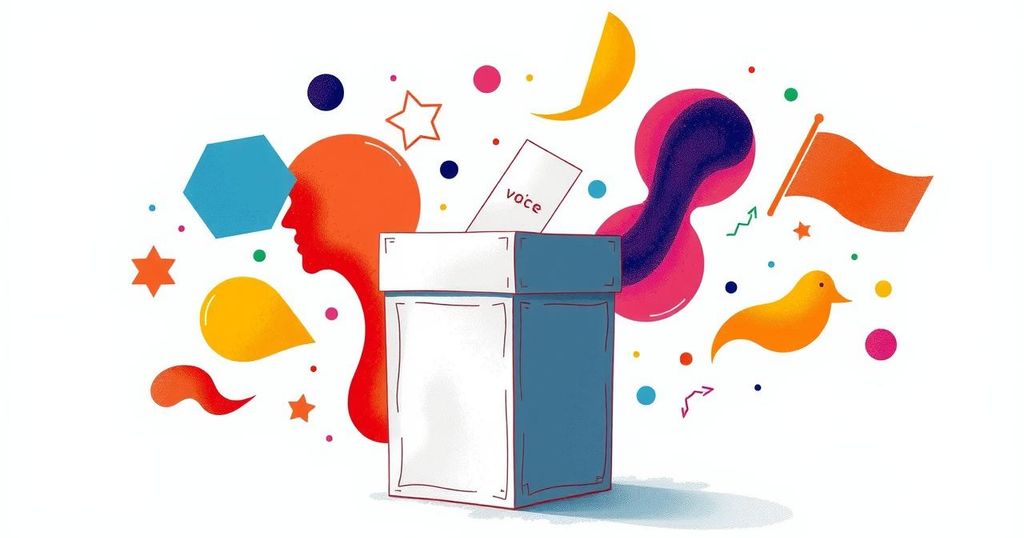World news
ALVARO NOBOA, ARGENTINA, ASIA, CITIZEN ’ S REVOLUTION, CONGRESS, DONALD TRUMP, ECUADOR, EL SALVADOR, ELECTIONS, HARVARD KENNEDY SCHOOL, JAVIER MILEI, LUISA GONZALEZ, NAYIB BUKELE, NORTH AMERICA, PHILIPPINES, POLITICS, PRESIDENTIAL ELECTION, PRESIDENTIAL ELECTIONS, REVOLUC, REVOLUCIÓN CIUDADANA, SOUTH AMERICA, TRADE RELATIONS, U. S
Lena Nguyen
0 Comments
Ecuador’s Presidential Runoff: A Polarized Political Landscape
Ecuador is poised for a presidential runoff election between incumbent Daniel Noboa and progressive candidate Luisa González after both secured around 44 percent of votes in the first round. Noboa focuses on neoliberal policies while González emphasizes social funding. The political climate is highly polarized due to ongoing issues, including drug violence and economic instability, as Ecuador prepares for another critical electoral moment.
Ecuadorians participated in another presidential election on February 9, 2025, culminating in a runoff between incumbent Daniel Noboa and progressive Luisa González. Both candidates secured about 44 percent of the vote, with less than one percent separating them. To win outright, a candidate must achieve over 50 percent of votes or 40 percent with a 10-point margin over the nearest contender. Noboa had previously defeated González in a closely contested 2023 election.
Former President Guillermo Lasso, facing impeachment, invoked the 2008 Constitution’s “muerte cruzada” provision to dissolve Congress and call for new elections. Noboa completed Lasso’s term and is now seeking reelection, while González represents Revolución Ciudadana, the party founded by former President Rafael Correa. This election underscores a stark division between Noboa’s neoliberal policies and González’s focus on social investment in healthcare and education.
Noboa, closely aligned with U.S. President Donald Trump and other far-right leaders, supports anti-immigrant measures and has shown willingness to accept deportees from the United States. The 37-year-old businessman comes from a wealthy family and graduated from Harvard Kennedy School. Noboa first gained political prominence after a strong debate performance in 2023, subsequently defeating González in the elections.
The current political climate in Ecuador is highly polarized, with approaches to issues such as narcotrafficking and economic challenges reflecting deep societal divides. Supporters of Correa reminisce about his administration’s achievements in reducing poverty and violence, while his critics attribute contemporary issues to his tenure. Noboa’s positioning also faces scrutiny regarding accusations of authoritarian governance, particularly concerning his heavy-handed strategies to combat increased drug-related violence.
Noboa’s controversial actions, including sending police to detain Correa’s former vice president at the Mexican embassy, have aggravated diplomatic relations. Amidst these tensions, Noboa attempted to sidestep electoral laws concerning his vice presidential candidate, eventually selecting María José Pinto González Artigas to maintain gender parity on his ticket. He and González led a crowded field of 16 candidates during this election cycle.
Leonidas Iza, representing Pachakutik, an Indigenous-aligned political movement, emerged as an essential candidate, highlighting persistent racial tensions affecting minority candidates. Despite his platform’s appeal to a broader constituency, including poor whites and Afro-Ecuadorians, Iza obtained over five percent of the vote, aligning with expectations but reflecting the challenges faced by leftist candidates.
In addition to the presidential race, elections were held for Ecuador’s 151-seat national assembly and the Andean parliament. The results displayed a close contest between Noboa’s National Democratic Action (ADN) party and González’s Revolución Ciudadana, revealing the fragmented political landscape. As April’s runoff approaches, it remains unclear which candidate will gain an advantage amid Ecuador’s complex social and political challenges.
Regardless of the outcome, Ecuador faces significant hurdles, including drug violence, economic instability, and fractured public expectations. The forthcoming government will need to navigate these obstacles while addressing the pressing demands of a deeply divided society.
The presidential runoff in Ecuador highlights a continuation of political polarization stemming from deeply entrenched economic and social issues. Candidates Daniel Noboa and Luisa González symbolize contrasting ideologies, with Noboa advocating neoliberal reforms and González promoting social investment. The elections reveal lingering societal divides and the urgent need for effective governance in the face of ongoing challenges, including drug violence and economic insecurity. The future remains uncertain as Ecuador approaches a pivotal moment in its political landscape.
Original Source: nacla.org




Post Comment